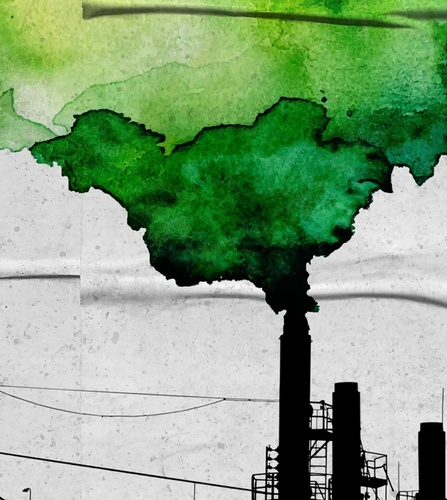Will 2023 be the Year of Anti-Greenwashing?
Quite often, even though we think that our green credentials are good, we may have been duped.
24 February, 2023

It’s easy for some companies to fool us into thinking that we’ve picked up a product because it looks recycled or has the words natural or eco on it, or because we’re led to believe that it’s more sustainable than a competitor. We also tend to part with more money if we think that we’re being more planet conscious. And that’s what’s called greenwashing.
The European Commission found that 53% of sustainability claims made in 2020 were ‘vague, misleading or provided unfounded information about products’ environmental characteristics,’ and on 25 January of this year, the consultation period closed on the Financial Conduct Authority (FCA)’s paper on Sustainability Disclosure Requirements (SDR) and investment labels (CP22/20). Simply put, the paper contains proposals designed to increase transparency on the sustainability profile of products and firms or anti-greenwashing. In line with the proposals, as of 30 June 2023, the FCA will have a new explicit rule to challenge firms and bring enforcement action where it considers them to be greenwashing their products or services.
So, how do you spot greenwashing?
Here are a few examples…
- Vague ‘green sounding’ language like farm fresh or conscious
- Irrelevant claims – making a big hoo-ha about a tiny green attribute on an otherwise anti-green product.
- Making product packaging ‘green’
- Misleading numbers or percentages
All common tricks to make dubious sustainability claims.
Here are some companies who were called out for greenwashing in 2022:
- HSBC Bank - the bank promoted a tree planting scheme as part of its new zero plan without admitting that it finances fossil fuel projects.
- H&M - the company was sued in November of last year (again) for misleading claims about its ‘Conscious Choice’ collection which, because of their ‘cheap and fast’ business model, could not be called sustainable.
- Coldplay: The deforestation tour - the band were partnered with Finnish oil company Neste, which claims to be the world’s largest producer of sustainable biofuels, to cut the footprint of the band’s air travel. However, according to Friends of the Earth, the company’s palm oil suppliers cut down 10,000 hectares of forest between 2019 and 2020.
And what should you be looking out for?
- Accountability – being transparent about how you’re being sustainable.
- Clear labelling – simple language.
- Accreditation – don’t take our word for it, look for accreditation or audits by third parties.
- Traceability – tracking your sustainability.
An important consideration is to understand where your messaging is now, and how you can improve. We are very aware that we’re not perfect and have made past mistakes. The key part is trying to make real efforts to improve our sustainability, our carbon emissions and our transparency. In 2022 when we stepped up our eco and sustainability effort, it culminated in a Gold Green Impact Award, we reduced electricity, waste, and water usage… only then planting 2,850 trees, and offsetting 76.3 Tonnes of Carbon via Ecologi.
And 2023? We’ve moved into a new biophilic space, become a member of 1% for the Planet (putting people and the planet over profit) and we’re working towards becoming BCorp. We know that the outcome of greenwashing is loss of credibility for us, and loss of trust in us by our clients. That’s why the complete avoidance of it is imperative for us as a business, leaving us accountable and communicating honest messages.
We’d love to hear your greenwashing thoughts and stories, get in touch!

Working to protect our planet
We know every decision we make has an impact on the planet. Our goal is to learn and improve, enabling us to better protect our environment. How have we fared so far? You can find out in our latest Impact Report.

Building a brand to future-proof the business
WRS is a leader in the Point of Sale (POS) industry, with systems in nine countries, across over 5,000 sites. It's a leader and expert in its field but needed a brand to match.

The power of people
Our business is based on three core areas - People, Planet and Prosperity. In our latest Impact Report, we take a closer look at the progress we've made over the last year around each one. Starting with People.